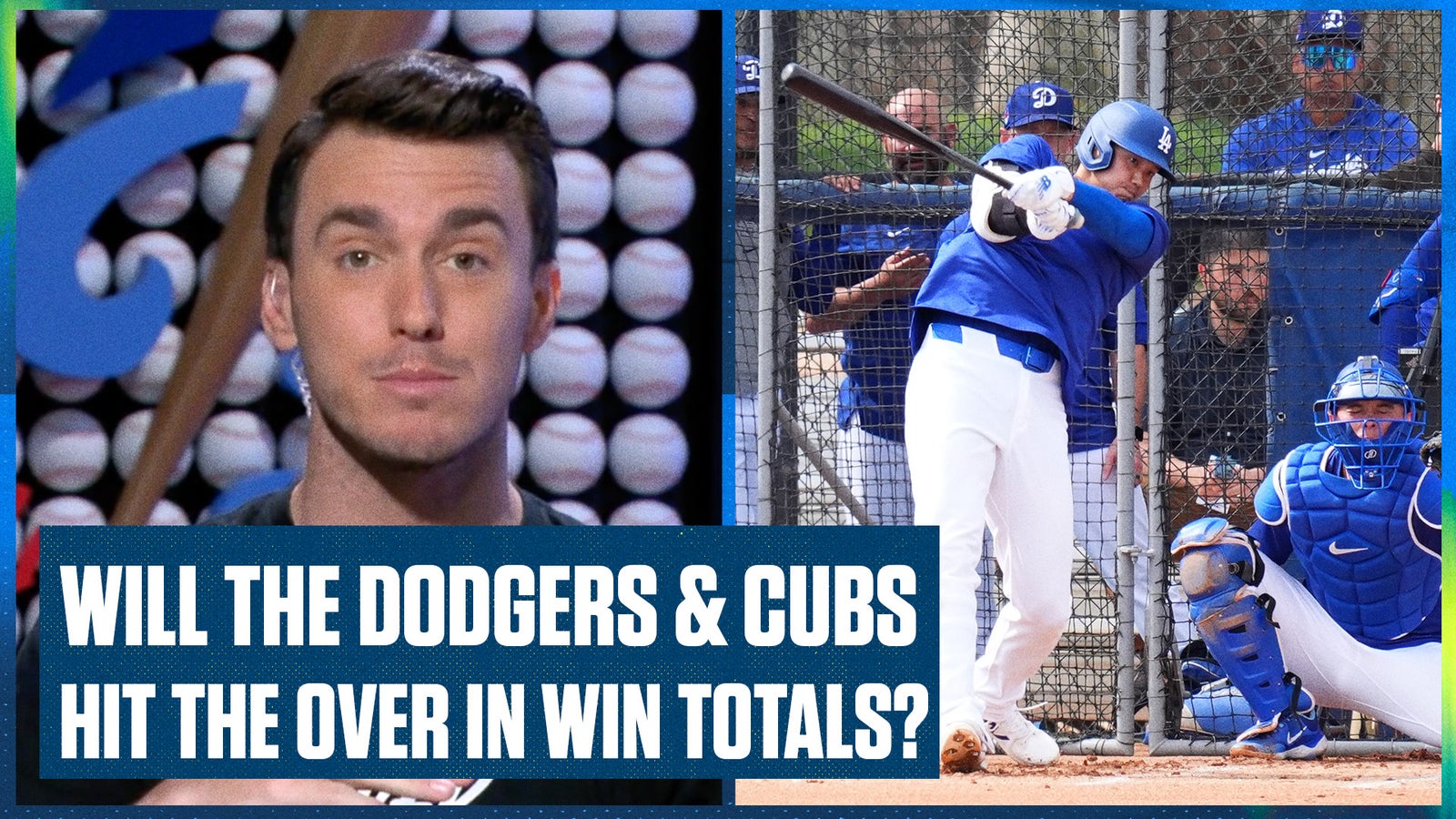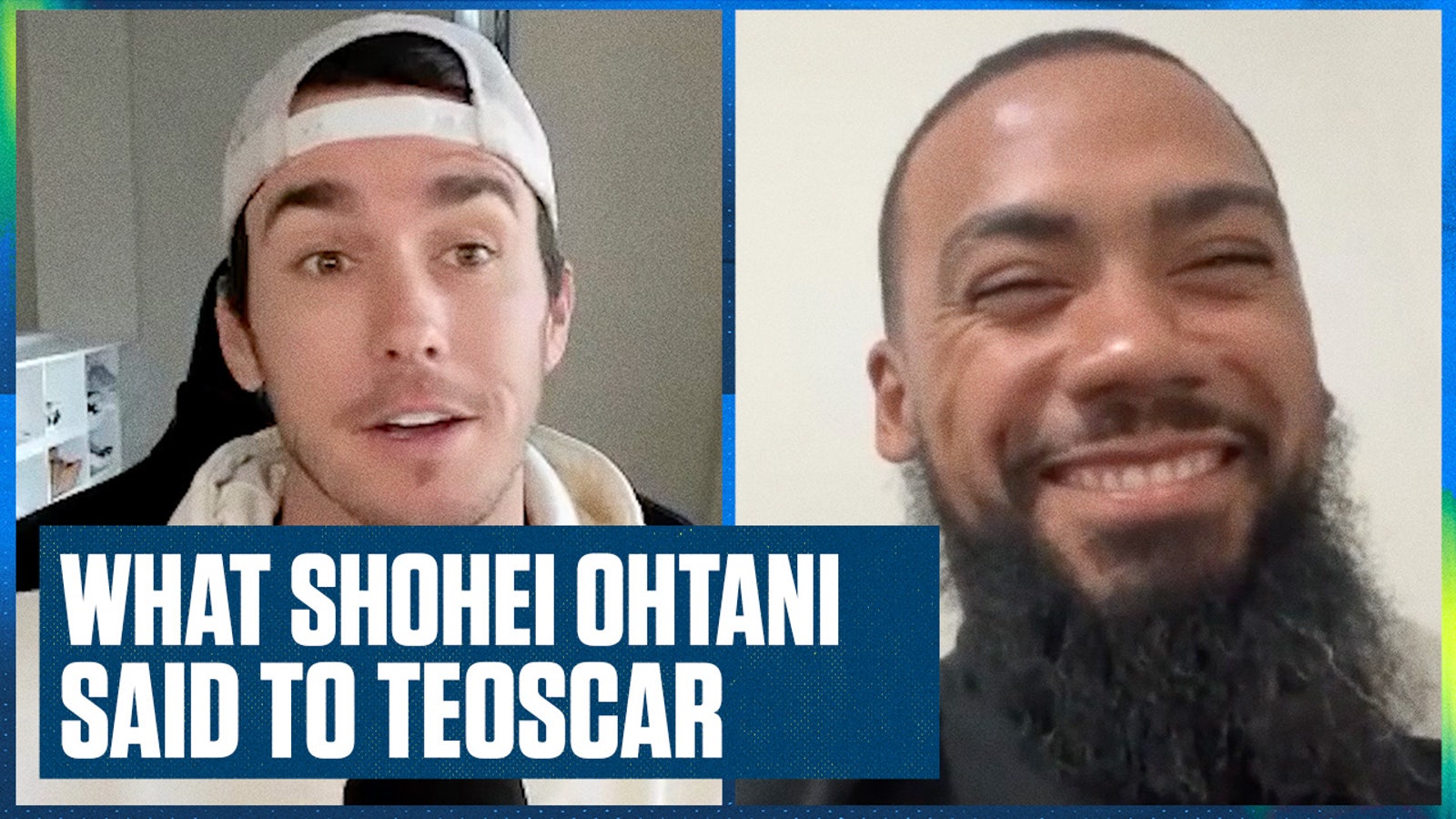
Inside Yoshinobu Yamamoto's MLB transition with the Dodgers
GLENDALE, Ariz. — Last Wednesday, Yoshinobu Yamamoto was slated to take the mound at 10:25 a.m. for his bullpen session when the Dodgers' morning meeting ran long. Yamamoto hadn't started his normal workout routine yet, and he wasn't sure how he'd get warmed up in time to remain on schedule.
This presented a quandary.
In Japan, his days were mapped out meticulously. Players knew what to do and when to do it, with little wiggle room to stray from the plan. He couldn't be late.
"Here, it's not like that," Dodgers manager of performance operations Will Ireton assured his team's new ace. "He is so respectful … You have to be like, ‘No, it's really OK.'"
Yamamoto is learning about the flexibility he is awarded stateside this spring. Beyond the obvious changes going from Nippon Professional Baseball to the majors — the baseball is slightly bigger and less tacky, and MLB's five-man rotations require starters to pitch more frequently than the once-a-week schedule in NPB — it is the small adjustments that often can get overlooked in a player's move from Japan to the U.S.
That's where it helps having someone like Ireton, who speaks both the Japanese language and the Dodgers' baseball language. He is there to make the transition as smooth as possible.
He can discuss baseball strategy with Yamamoto, and he can also help make introductions. He can relay pitching data to Yamamoto, and he can also assure the scrupulous pitcher that it's fine when plans change. He can ask Yamamoto what he's looking to do in a bullpen session, and he can also offer up places to eat (like the Japanese restaurant he suggested seven minutes away from Yamamoto's place in Arizona).
"Will has more bandwidth," manager Dave Roberts said, "than maybe anyone in the organization."
Ireton, who grew up in Japan, is most well-known for his three years spent as Kenta Maeda's interpreter with the Dodgers from 2016 to 2018. During that time, he became something of a local celebrity among the team and its fans for his energy and sense of humor, which was well-documented on Maeda's Instagram page.
Ireton earned the nickname "Will the Thrill" from president of baseball operations Andrew Friedman for his exuberant nature, positive attitude and willingness to go all out in whatever task was asked — be it dancing in the dugout before a game, shagging a pop fly in batting practice, or, as he once did in March 2017, deadlifting 405 pounds while donning a tiger mask and a wrestling singlet in the Dodgers' spring training clubhouse as players across the room chanted his name.
Now, seven years later, Ireton's job has developed far beyond translating for the Dodgers' No. 18 — though that's still often part of it, as Yamamoto now dons the same number Maeda once did. Yamamoto and Shohei Ohtani have their own interpreters, but Ireton can help fill in the gaps, particularly when it comes to sharing baseball information.
"He really doesn't get enough credit for kind of putting this in place and making these guys feel welcome," assistant pitching coach Connor McGuiness said. "He's just the ‘all-everything' guy."
In his final year as Maeda's interpreter, Ireton began scrolling through the Dodgers' job listings to try to find a way onto the baseball operations side. The team had a development coach program in Triple-A that allowed him to get a foot in the door, exposing him to everything from in-game strategy to interpreting technology to coaching. He realized he was most interested in the strategy of the game, and he has spent the past four years working in player development on the big-league side.
"Anything really a player needs, whether that be data, analytics, anything they can carry into the field, I am part of that process," Ireton explained. "But the job has definitely grown into a little more than that."
Especially now.
Ireton believes his past experience has prepared him for this moment, as the Dodgers welcome two Japanese superstars to the fold. Ireton's new position provides him the latitude to speak up in a way he never could have as an interpreter. He understands what the Dodgers want to do on the field and knows how important it is that new players feel welcomed and at home off of it.
Of course, that responsibility goes beyond any one person.
When the Dodgers made their pitch to Yamamoto, the pitcher was most allured by the chance to win, but he was also impacted by the contingent of star players who made the effort to meet with him. That group of star players included Ohtani, the latest addition to the Dodgers' rich history of Japanese talents.
When the time came for Yamamoto to consider his options, he sought advice from other players who made a similar transition. Shortly before the posting process began, Yamamoto spoke to veteran pitcher Yu Darvish, who told him to go to a team that would put in the work to understand who he is and what he needs and to pick a place that he truly felt wanted.
Darvish said he tries to give as much information as he can to any player making the jump from Japan to the states. After all, he remembers the obstacles that first year in the majors can present — more for the cultural challenges than anything on the field.
"We come here from Japan, and obviously we're new here, so it's nobody's fault, but there could be times that they don't understand us or our culture," Darvish told FOX Sports through an interpreter.
The Dodgers are uniquely positioned there, with a manager who was born in Japan and whose mother is Japanese. Roberts said it is "imperative" that Yamamoto and Ohtani feel comfortable. The question is how to go about doing that.
He is taking contrasting approaches with his two biggest signings.
With Ohtani, Roberts said he didn't want "to come in too hot" or "go full-court press." They have one-off conversations and check-ins, but the manager is conscious of giving Ohtani his space, especially given all the attention on him. Ohtani already has a good idea of what to expect after six seasons in the big leagues.
With Yamamoto, it's different. This is all new for the 25-year-old who signed a $325 million contract, making him the highest-paid pitcher in the sport's history. The deal brings an added spotlight and pressure to produce quickly for a player who has yet to throw his first major-league pitch.
"I think we really connected in our meeting when he came to Dodger Stadium, and really just kind of thinking of him as a son," Roberts told FOX Sports. "Just trying to let him know that whatever he needs as support — on the field, off the field — I'm going to be there to help him. I think that landed with him. For him, it's more of just a daily make sure we stay connected because I think that culture, where the manager and the player have such a unique relationship, that's all he's known. So, for me, I'm trying to continue to foster that and just know that there's a transition that has to take place, but regardless I'm going to be in it with him."
Dodgers infielder Miguel Rojas shared a similar sentiment when, two days after pitchers and catchers reported to spring training, the shortstop left a bottle of red wine in the lockers of Yamamoto and Ohtani with a note attached.
"It's not about the bottle of wine, it's about the message,'" Rojas explained to FOX Sports. "‘Hey, I'm here for you, if you need anything, just let me know. I'm excited you're in the organization. I can't wait to play behind you.' That way, they kind of maybe feel that someone is on their side already, even without knowing them or having to talk a lot or speaking the same language. I think that goes a long way."
Rojas, who is from Venezuela, said he remembered what it was like trying to assimilate to a different culture while not knowing the language. When people lent him a hand — whether it was in Miami, where veteran Martín Prado took him under his wing, or in Los Angeles, where Mookie Betts gifted him shoes and Jason Heyward bought him a bottle of birthday wine — it resonated.
"I feel like that's one of the barriers that kind of sometimes gets in the way of being the best player that you can be on the field," Rojas said. "So, for me, I think it's important for them to understand, even when they're far away from what they're comfortable with and their families and the things they're used to do, they still can find someone that they can rely on."
The efforts being made are mutual.
At his introductory press conference, Yamamoto began with a statement in English expressing how excited he was to join the Dodgers and call Los Angeles home. Roberts has noted the work the phenom is putting in to learn the names of every player at camp as well as the new language. Most importantly, he does not appear overwhelmed by the experience on the mound, where he left teammates awestruck in his first live batting practice session before striking out three batters in two scoreless innings in his Cactus League debut Wednesday.
Meanwhile, outfielder Teoscar Hernández has already started the process of teaching Yamamoto and Ohtani some Spanish, while Rojas is doing his best to pick up Japanese phrases.
"Ohayo with a bow is good morning," Rojas said. "I asked Yamamoto how to say good morning, just in case the translator is not around him. I want him to know that we care."
Rowan Kavner is an MLB writer for FOX Sports. He previously covered the L.A. Dodgers, LA Clippers and Dallas Cowboys. An LSU grad, Rowan was born in California, grew up in Texas, then moved back to the West Coast in 2014. Follow him on Twitter at @RowanKavner.












